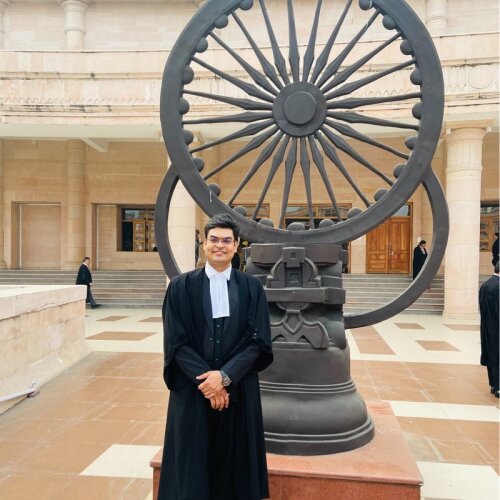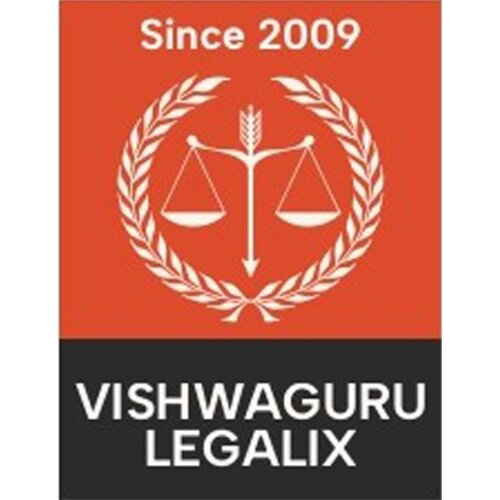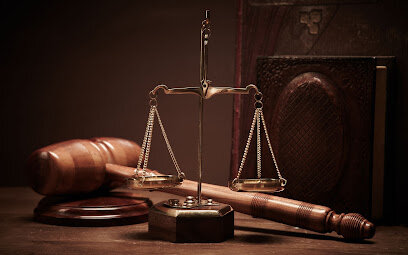Best Collaborative Law Lawyers in Lucknow
Share your needs with us, get contacted by law firms.
Free. Takes 2 min.
Free Guide to Hiring a Family Lawyer
List of the best lawyers in Lucknow, India
About Collaborative Law in Lucknow, India
Collaborative Law is an alternative dispute resolution process in Lucknow, India, where parties work together to resolve their legal issues outside of traditional court litigation. It aims to encourage cooperation, open communication, and problem-solving to reach a mutually beneficial agreement.
Why You May Need a Lawyer
There are various situations where seeking legal help in Collaborative Law can be beneficial:
- Divorce or separation: If you are going through a divorce or separation, Collaborative Law can help you avoid contentious court battles and find mutually satisfactory solutions regarding child custody, property division, and support.
- Family disputes: In cases involving family disputes, such as child custody, elder care, or inheritance issues, a lawyer specializing in Collaborative Law can guide you through the process, ensuring your interests are protected.
- Business or contractual disputes: If you are involved in a dispute related to a business partnership, contract, or employment agreement, a Collaborative Law lawyer can assist in finding a fair resolution without resorting to expensive litigation.
Local Laws Overview
Collaborative Law in Lucknow, India, operates within the framework of the Indian legal system. Some key aspects of local laws relevant to Collaborative Law include:
- Collaborative Law is voluntary and requires the willingness of all parties to participate.
- The agreements reached through the Collaborative Law process are legally binding and enforceable.
- The confidentiality of discussions and documents shared during Collaborative Law proceedings is protected by law.
Frequently Asked Questions
1. Can Collaborative Law proceedings be converted into court litigation?
No, one of the fundamental principles of Collaborative Law is that if the process breaks down and court litigation is necessary, both Collaborative Law lawyers must withdraw, and new lawyers need to be appointed.
2. How long does the Collaborative Law process typically take in Lucknow?
The duration of Collaborative Law proceedings can vary depending on the complexity of the case and the willingness of the parties to collaborate. It can take anywhere from a few months to a year or longer to reach a resolution.
3. Are the outcomes of Collaborative Law negotiations binding?
Yes, the outcomes of Collaborative Law negotiations are legally binding, provided all parties agree to and sign the final agreement. It is advisable to have a lawyer review the agreement before signing.
4. What if one party refuses to cooperate during the Collaborative Law process?
If one party refuses to cooperate or engage in good faith in the Collaborative Law process, the case may need to transition to court litigation. Each party must make an independent decision regarding their approach in such situations.
5. Is Collaborative Law suitable for all legal disputes?
While Collaborative Law can be highly effective in resolving a wide range of disputes, it may not be suitable for cases involving domestic violence, extreme power imbalances, or where one party is acting in bad faith.
Additional Resources
For more information and assistance related to Collaborative Law in Lucknow, India, you can refer to these resources:
- The Lucknow Bar Association: Provides listings of qualified Collaborative Law lawyers in the region.
- The High Court of Judicature at Allahabad: Offers information on legal procedures and access to legal resources.
- The International Academy of Collaborative Professionals (IACP): An international association that promotes Collaborative Law and offers resources, including a directory of trained professionals.
Next Steps
If you require legal assistance in Collaborative Law in Lucknow, India, follow these steps:
- Assess your legal needs and determine if Collaborative Law is the appropriate approach.
- Research and identify experienced Collaborative Law lawyers in Lucknow.
- Schedule initial consultations with potential lawyers to discuss your case and their experience in Collaborative Law.
- Select a lawyer who understands your needs and with whom you have good rapport.
- Begin the Collaborative Law process under the guidance and representation of your chosen lawyer.
Lawzana helps you find the best lawyers and law firms in Lucknow through a curated and pre-screened list of qualified legal professionals. Our platform offers rankings and detailed profiles of attorneys and law firms, allowing you to compare based on practice areas, including Collaborative Law, experience, and client feedback.
Each profile includes a description of the firm's areas of practice, client reviews, team members and partners, year of establishment, spoken languages, office locations, contact information, social media presence, and any published articles or resources. Most firms on our platform speak English and are experienced in both local and international legal matters.
Get a quote from top-rated law firms in Lucknow, India — quickly, securely, and without unnecessary hassle.
Disclaimer:
The information provided on this page is for general informational purposes only and does not constitute legal advice. While we strive to ensure the accuracy and relevance of the content, legal information may change over time, and interpretations of the law can vary. You should always consult with a qualified legal professional for advice specific to your situation.
We disclaim all liability for actions taken or not taken based on the content of this page. If you believe any information is incorrect or outdated, please contact us, and we will review and update it where appropriate.
















